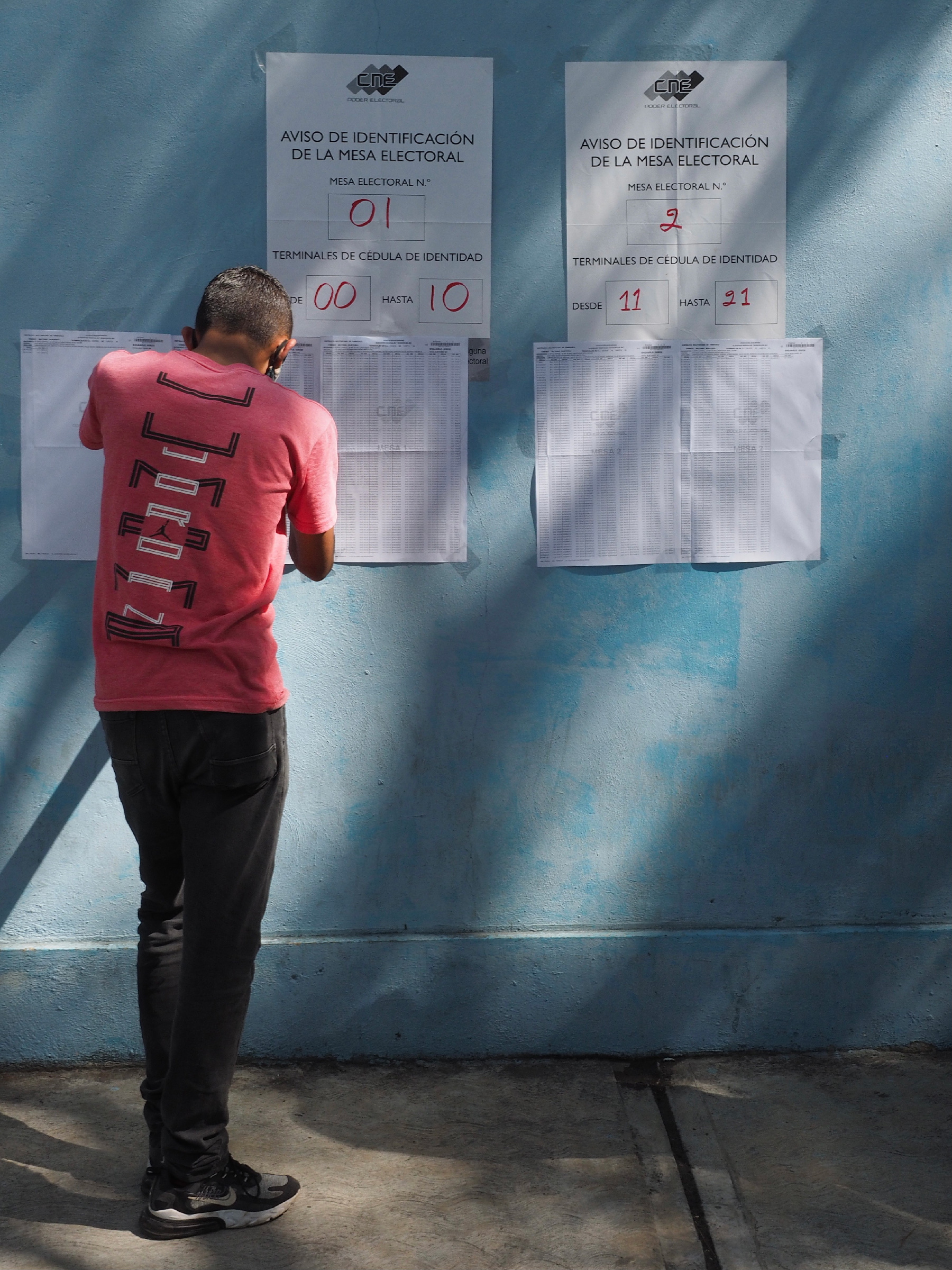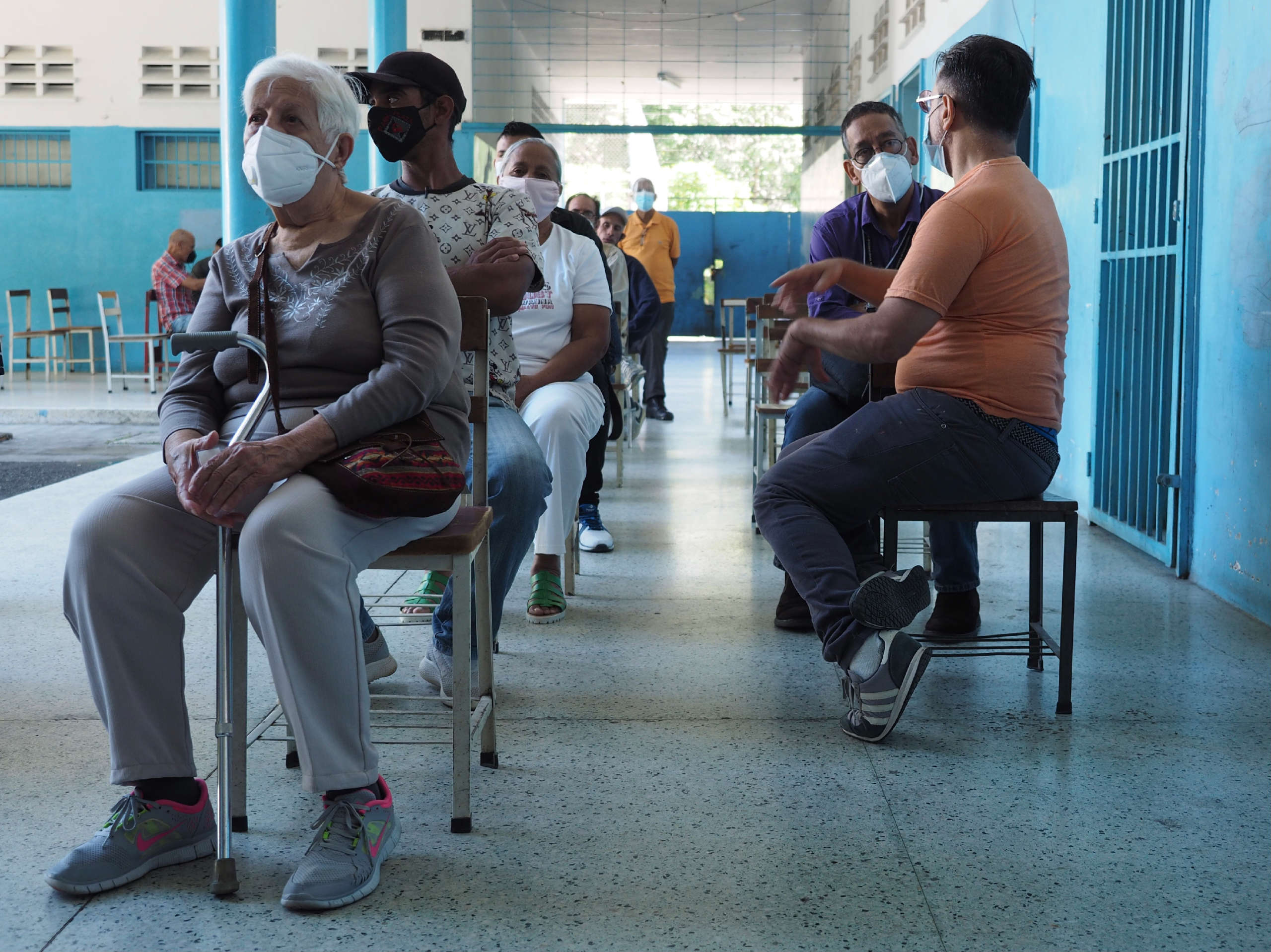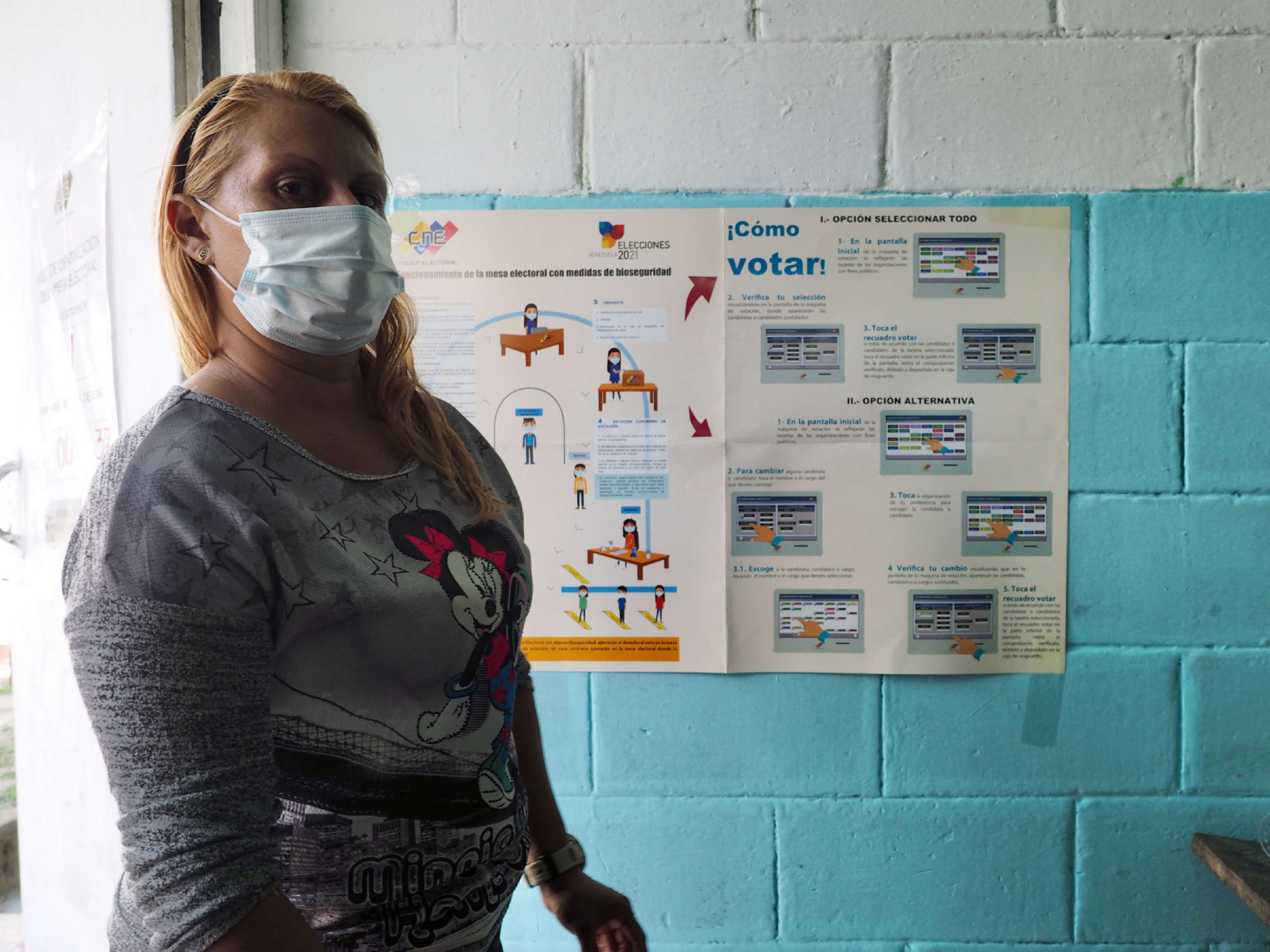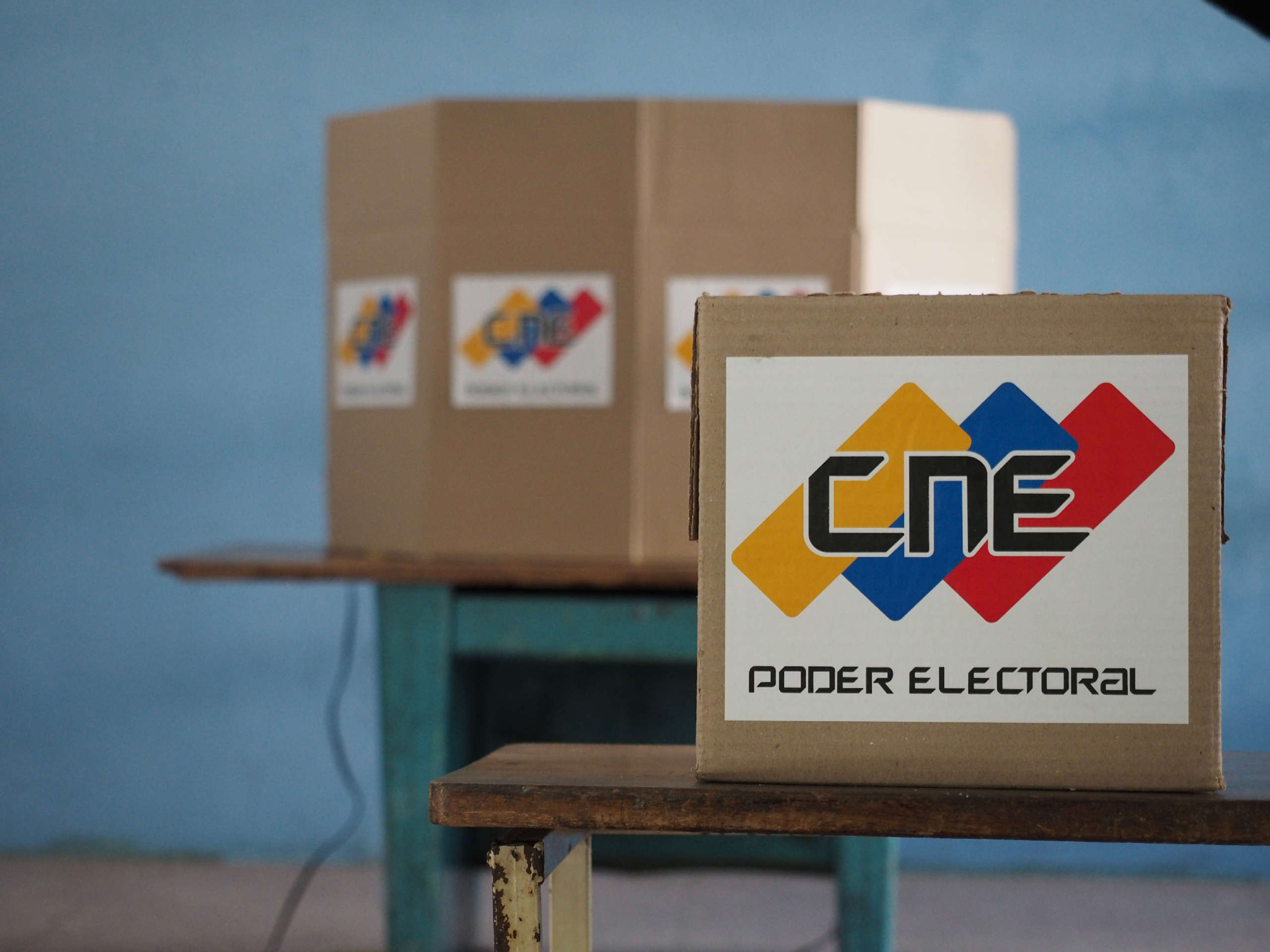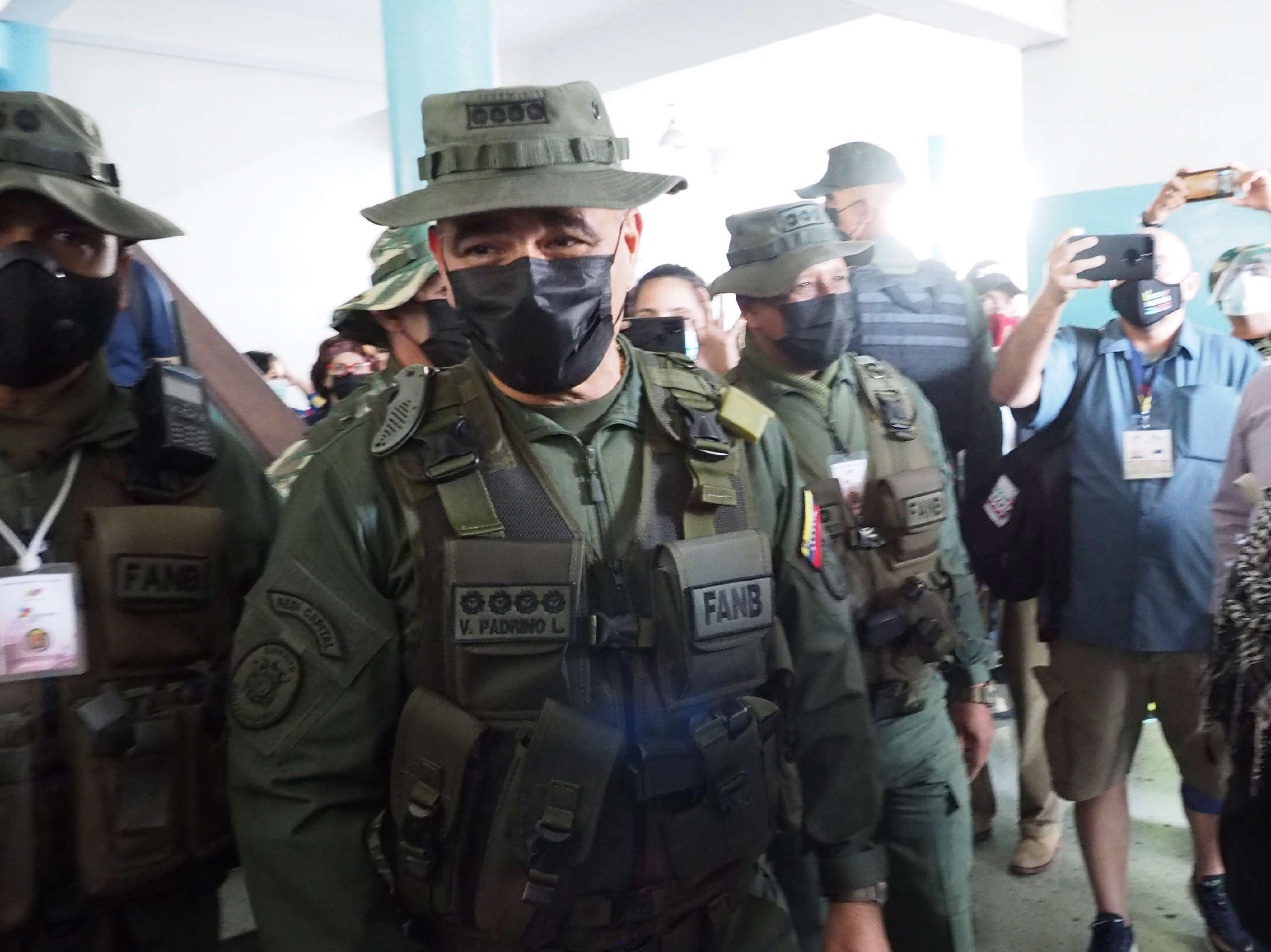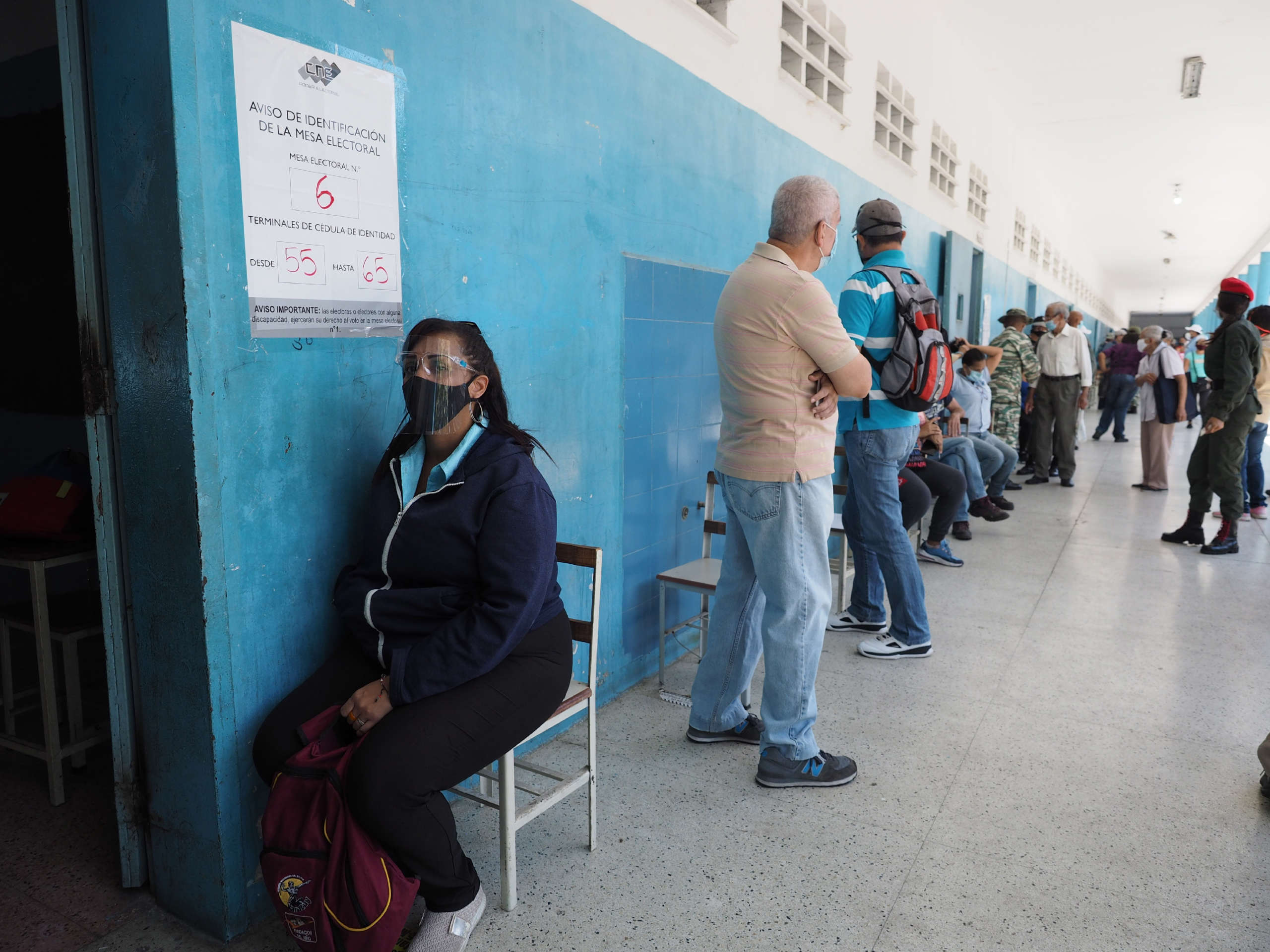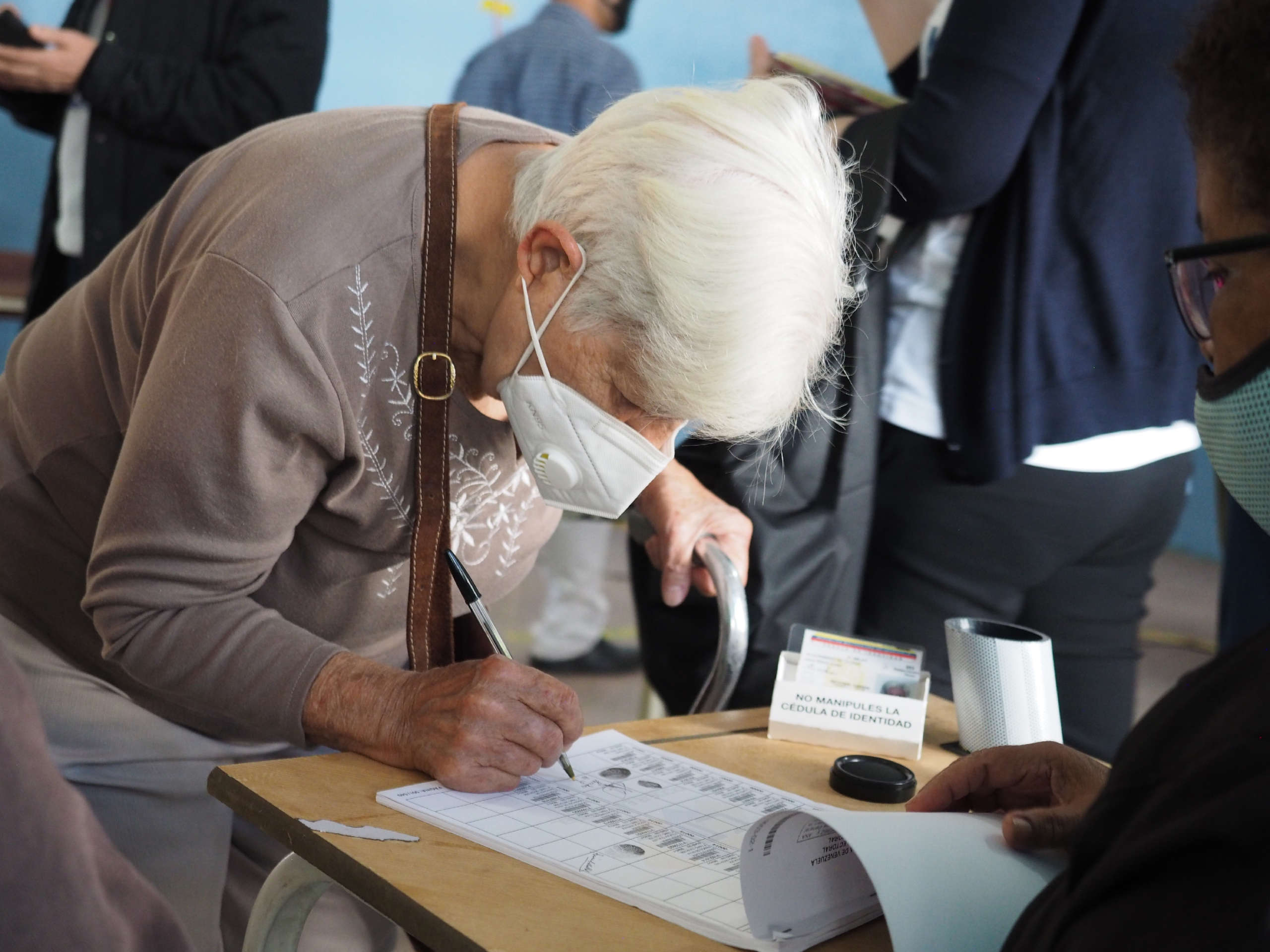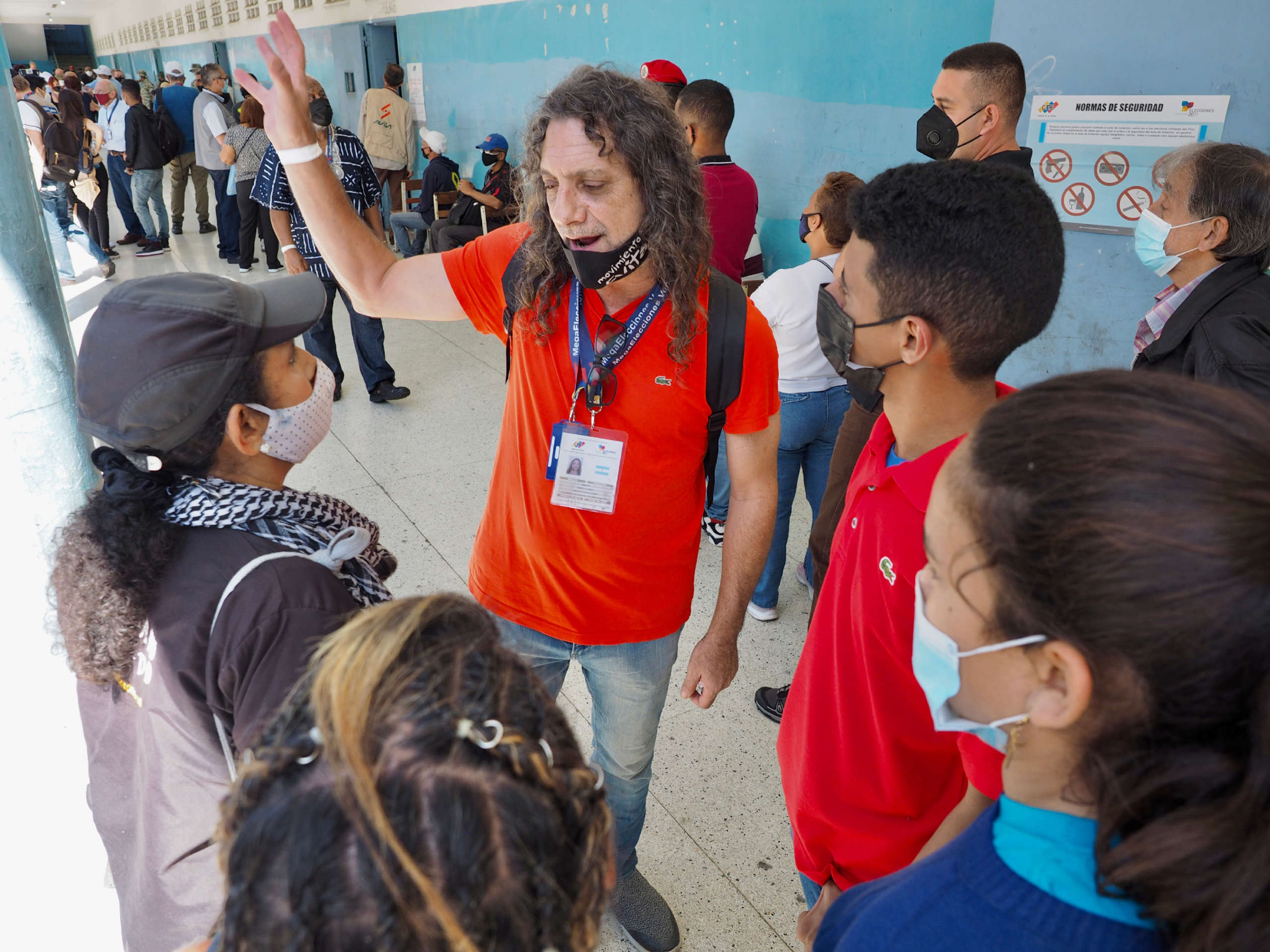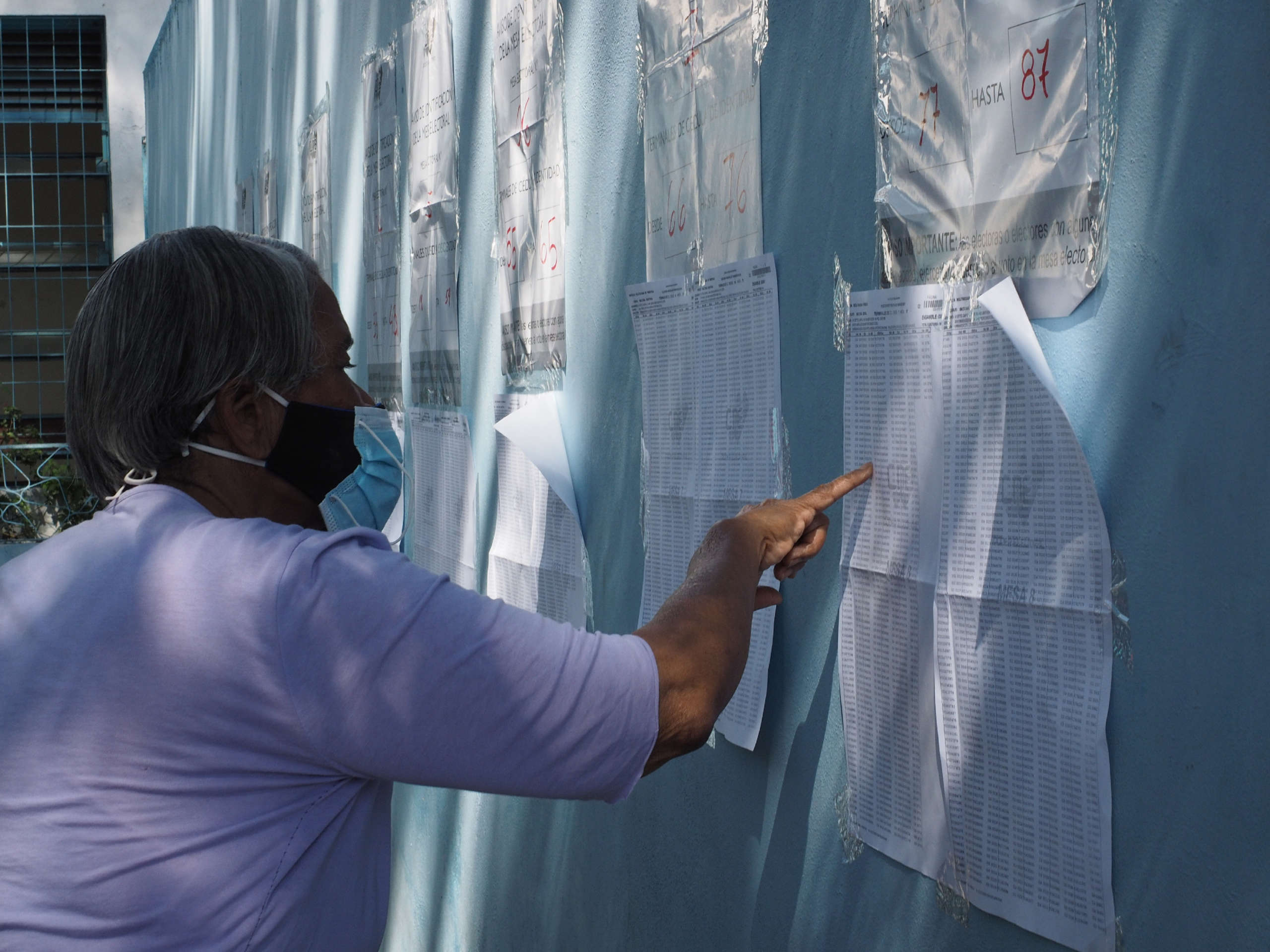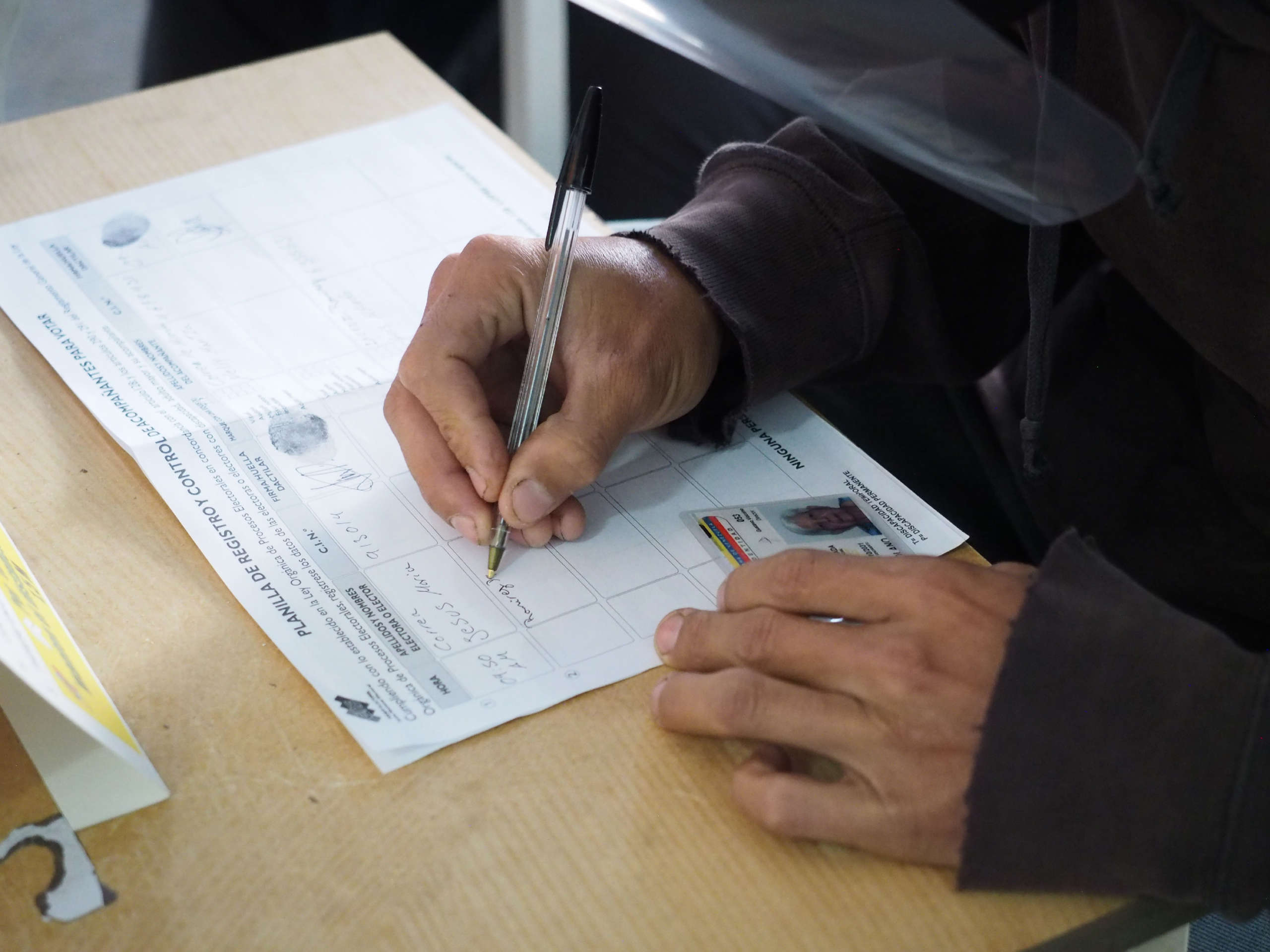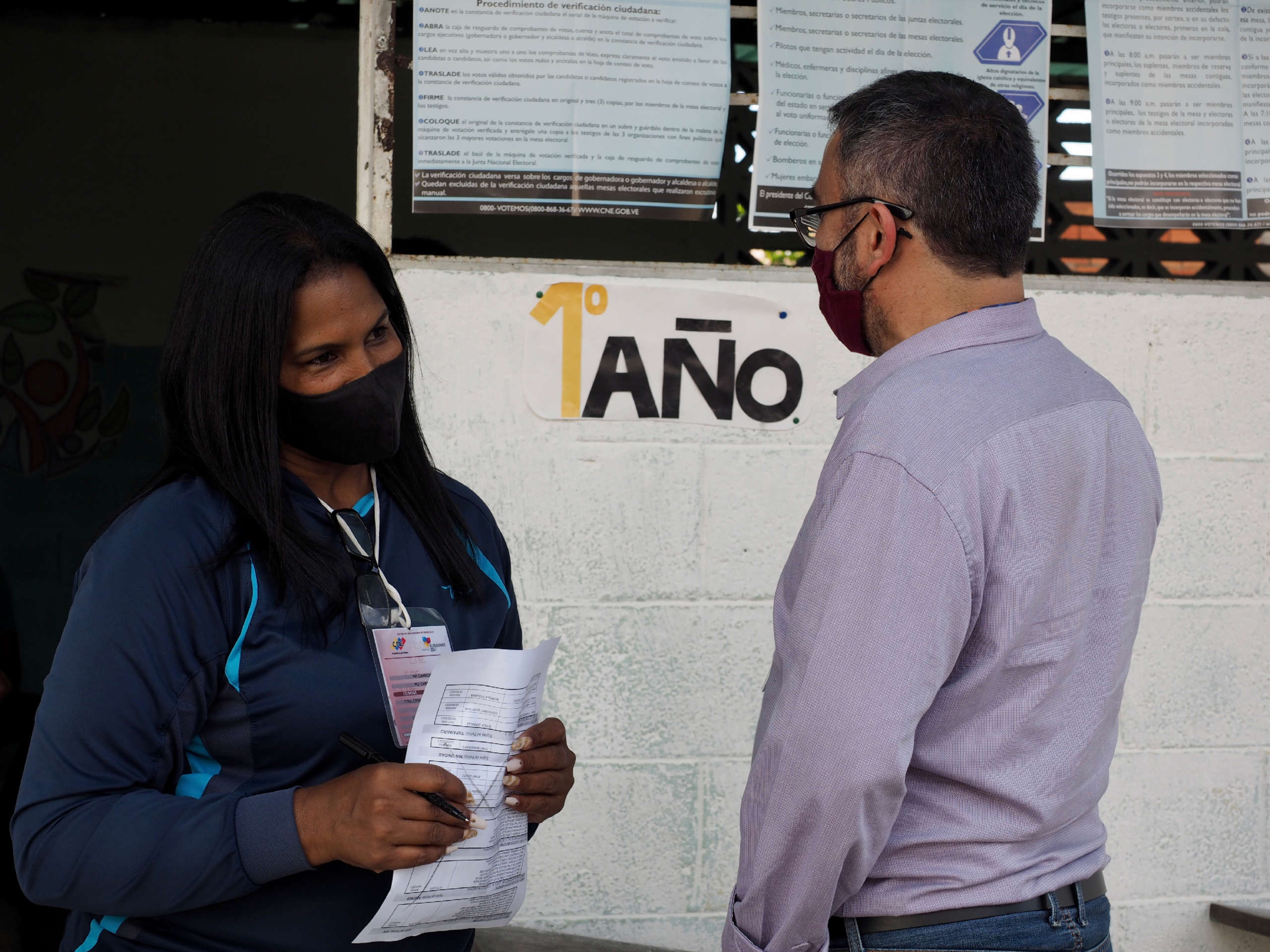Cuba will always remember your expressions of support, your permanent call for the lifting of the embargo…[My invitation to attend the Independence Day celebrations] has an immeasurably greater value in times in which we are suffering the ravages of a multidimensional war, with a criminal blockade opportunistically intensified in the middle of the COVID-19 pandemic with 240 [new] measures…In parallel, we are facing an aggressive campaign of hate, disinformation, manipulation, and lies assembled on the most diverse and influential digital platforms that ignore all ethical limits…Under the fire of this total war, the solidarity of Mexico with Cuba has awakened in our people greater admiration and the deepest gratitude. Viva México! Long live the friendship between Cuba and Mexico.
— Cuban President Miguel Diaz-Canel, Mexico City, September 16, 2021 Mexican Independence Day Celebration
 Cuban President Miguel Diaz-Canel, Mexican President Andres Manuel Lopez Obrador, and Cuban Foreign Minister Bruno Rodriguez
Cuban President Miguel Diaz-Canel, Mexican President Andres Manuel Lopez Obrador, and Cuban Foreign Minister Bruno Rodriguez
Cuba’s Advances Against COVID-19 is Political Problem for Biden and Blinken
In recent weeks, “communist” Cuba has begun to steadily and sharply reduce the rates and numbers of both new infections and deaths from the COVID-19 pandemic. This unfolding turnaround is from the worst period from July to September 2021.
Cuba now is well on the road to the near-total full vaccination of the entire island population of 11.3 million people, including children over two, with its three-dose — domestically designed and produced — program in the remaining months of 2021. Furthermore, the Cuban government and Ministry of Tourism is now able to project the reopening (formally on November 15, 2021) and steady recovery of its crucial tourism industry which had been shuttered by some 95.5%, with a devastating drop in foreign exchange, compounding the cruel US economic war under the Donald Trump Administration through Biden with seamless continuity.
(See excellent 10-5-21 article by Helen Yaffe, “Cuba Accelerates Vaccine Drive.”)
The socialized (and state-of-the-world) Cuban scientific, bio-technology, epidemiological, and pharmaceutical industry, as a whole, is now in a stronger position to carry out the production of its highly efficacious vaccines with increasing availability (through sales or donations) to other nation-states and international health organizations within the huge worldwide demand. Cuban production, which is hindered by US sanctions, will be independent of the price-gouging and arbitrary distribution of the pharmaceutical oligopolies centered in the advanced capitalist countries who lord over grotesque inequality in access to vaccines worldwide.
Perversely this creates a serious political conundrum for US policymakers who are enforcing and deepening the cruel, bipartisan extraterritorial embargo (the blockade) under the Joseph Biden White House and State Department.
Heroic Cuban Resistance
It is the heroic resistance led by the Cuban government and revolutionary mass organizations, including the Committees in Defense of the Revolution (CDR); the Federation of Cuban Workers (CTC), Federation of Cuban Women (FMC); student, and farmers organizations under the umbrella and power of Cuba’s medical and scientific industry that is propelling these advances in the teeth of US aggression. This heroic Cuban resistance has been manifested even amidst the shortages, stresses, and long lines from the tightened US economic war, which was its purpose.
This has been supplemented by an outpouring of international solidarity that has been instrumental in countering and beginning to conquer the short-term, but devastating, economic and human impact of US asphyxiation policies.
These anti-Cuba policies have been deepened precisely as the 2020-21 tourism collapse combined with a spike in Delta-variant infection that landed in Cuba, spread, and set in. This was exploited by Biden’s White House, and bipartisan Washington as a whole, leading up to the highly orchestrated July 11 events.
Some three months later we can say that unintended consequences for the Biden Administration are mounting alongside Cuba’s medical advances against the pandemic.
All of these accelerating developments amount to a turning point and new political reality in the decades-long struggle to defeat the US blockade.
Mexico Stands Up
The Biden Administration is going to find it difficult in the coming months to separate their aggressive anti-Cuba policy from the overall challenges to US policies across the Americas. This was underlined in very sharp terms by the public initiative of President Andres Manuel Lopez Obrador’s Mexican government to expedite – in the teeth of the Biden-led anti-Cuba propaganda campaign – significant material aid to Cuba in three Mexican naval vessels filled with medical, energy, and food aid in the summer of 2021.
 Cuba’s Minister of Foreign Trade and Foreign Investment Rodrigo Malmierca delivers a speech next to Mexico’s Navy multipurpose ship Arm Libertador Bal-02, that just arrived with humanitarian aid at the port of Havana, Cuba, July 30, 2021. REUTERS/Alexandre Meneghini
Cuba’s Minister of Foreign Trade and Foreign Investment Rodrigo Malmierca delivers a speech next to Mexico’s Navy multipurpose ship Arm Libertador Bal-02, that just arrived with humanitarian aid at the port of Havana, Cuba, July 30, 2021. REUTERS/Alexandre Meneghini
From June 23 to July 11 to November 15
On June 23, 2021 for the 29th straight year, by an overwhelming 184-2 with three abstentions (non-binding) vote, the United Nations General Assembly condemned the “economic, commercial, and financial embargo imposed by the United States of America against Cuba.” Washington’s utter political isolation in its anti-Cuba policies was again illustrated. Rather than concede this and change, Biden and his team consciously chose to orchestrate, exploit, and manipulate the events of July 11, 2021 and recruit allies.

After the isolation of the June 23 UN General Assembly vote, leading up to the July 11, Biden and Blinkin scraped the globe, actively seeking allies and recruits. They managed to scrape together a group of 20 lackeys for a narrow anti-Cuba statement.
Biden and his team have deepened US bellicosity and sanctions since the highly orchestrated July 11 “events” in Cuba and the accompanying US government and big-business media (and social media) anti-Cuba propaganda blitzkrieg.
Now the US government, under the direction of Biden and his team, is attempting to step up their subversion and provocations with another round of “protests” on November 15 in an effort to revive and activate Washington’s agents and clients on the ground. It is consciously aimed, in the November 15 date chosen, at disrupting the reopening of tourism amid Cuba’s amazing turnaround with COVID-19 amid mass vaccinations.
Post-Afghanistan Challenges and Pressures Coming for Biden
Amid the political hand-wringing and jockeying that accompanied Washington’s bipartisan decades-long intervention, invasion, war, and endgame in Afghanistan at the end of August 2021, the broader question of the international political consequences for US policymakers and the Joseph Biden Administration is more sharply posed. Will Washington’s blink-of-the-eye, post-Afghanistan-defeat mode make the US rulers more constrained or more coiled to act along the course of combining devastating economic sanctions with threats of military aggression?
In an August 21, 2021 column, written in the wake of Washington’s Afghan defeat, Andres Oppenheimer, Miami Herald columnist and veteran voice of virulent opposition to the Cuban Revolution and Washington-Havana normalization, argued that the debacle need not be accompanied by any easing up on anti-Cuba policies. (“Biden might take harder line in Cuba, Venezuela to make up for bungled exit from Afghanistan”, 8-21-21).
How likely is Oppenheimer’s “against the conventional wisdom” self-proclaimed “prediction?” Certainly, Biden and Co. have been implementing a policy that was settled on many months ago — consciously deciding against any amelioration of US sanctions and the extraterritorial embargo — and they seem compelled to stick with it for now. The question is how sustainable Washington’s bipartisan anti-Cuba policies will be in the coming months.
Toe the Line!
US anti-Cuba policy under Biden, Harris and Blinken remains focused on increasing economic stress, disruption, and shortages – especially in food, energy, and medical supplies – that will lead to enough accumulated suffering to render more effective US-organized subversion and “regime-change” efforts. This was articulated early in US anti-Cuba subversion and aggression in the infamous 1960 “Mallory Memorandum” shortly before the US-mercenary invasion at the Bay of Pigs.
But it is also very clear that a major purpose of the mendacious anti-Cuba capitalist media extravaganza after July 11 (that followed the lead of the Biden Administration) was to force into line, up and down the line, any Democratic or Republican politician or elected official who might be tempted to promote legislation to ameliorate or end US economic, commercial, and travel sanctions against Cuba.
This has been basically accomplished so far for now. Even the few timid statements issued formally against the embargo by elected officials in Washington, DC after July 11 were prefaced with obligatory sophistry about “human rights” and “freedom of assembly” in Cuba and bogus charges directed against the Cuban government.
More directly, the best of such statements are contemptuous of the mobilized large majority of the Cuban working class and entire sovereign people who are defending their country and their Revolution from US-orchestrated subversion and intervention. This is called “repression” in the US capitalist media and social media, echoing the bipartisan state policy of US imperialism. Revolutionary and socialist Cuba has a right to defend itself! Why is Cuba obligated to tolerate paid agents and clients of a foreign power — with the rich US history and continuity of violent intervention since the turn of the 19th Century! — openly engaged in “regime change” policies by any and all means possible?
 False Premises
False Premises
Accepting the false premises rationalizing a US anti-Cuba sanctions and bellicosity you claim to oppose is the exact opposite of how to effectively oppose the policy. This should be crystal clear from the history over 13 White Houses and on Capitol Hill — whether the House and Senate majorities and leadership were Democratic or Republican — since the triumph of the 1959 Cuban Revolution.
US anti-Cuba policy, once motivated as anti-Soviet, of course, continued through the collapse of the Soviet Union. It continued through the passing of Fidel Castro, through the revolutionary governments led by Raul Castro, to this very day under President Miguel Diaz-Canel. There was the brief interlude of a positive shift under President Barack Obama (while US economic, commercial, and financial sanctions and regulated travel continued), which was largely reversed under Donald Trump and been still-further deepened under Biden.
Representative Alexandria Ocasio-Cortez (D. NY) gave perhaps the “best” of the few statements opposing the blockade from any elected officials in the wake of the July 11 events. She condemned as “absurdly cruel” Biden’s “defense of the embargo.” And yet her first three sentences (see below) are full of lies and disingenuous half-truths that ensure no political way forward.

The fact is that even before July 11, the individual figures on Capitol Hill who have been most outspoken against US policy and sanctions had been unable to move legislation toward public consideration and vote. Since the 1996 Helms-Burton legislation anti-embargo in general or even anti-travel sanctions legislation is generally blocked in Committee, not even, or ever, allowed to the House and Senate floor for vote. (The Helms-Burton legislation signed in 1996 by the William Clinton White House makes Congressional legislation the only legal route to end US sanctions and their extraterritorial nature.)
To distract from this obvious David v. Goliath reality, Washington throws dust in people’s eyes with deeply, purposely outrageous prattle, hypocrisy, and diversions around “human rights” and “democracy.”
It follows that, for the time being at least, openings in the legislative field, especially on the federal level, to ameliorate or limit the blockade, will themselves be limited if not precluded for now. But it is also true that there remain more promising prospects and results – despite inevitable counter-pressures from pro-blockade, pro-US intervention forces — for Resolutions from City Councils, trade unions, religious bodies and denominations, and other institutions. Over 30 City Councils from coast-to-coast have already passed such Resolutions. (See excellent statement from US Presbyterian Church here.)
Statements or Resolutions from labor, African American, women’s rights forces, civic, medical, scientific, academic bodies, or anyone with the courage to speak out are more urgent than ever. These can complement street actions such as the monthly Bridges of Love Cuba Caravans initiated by Cuban American families, social media action, and continuing to build the US-Canadian and international movements.
Magnificent Victory of Syringes for Cuba Campaign!
Since the onset of the COVID-19 pandemic in the early months of 2020, the international Cuba solidarity movement has made important advances. This is particularly the case in the critical North American arena where the power and political weight of US anti-Cuba policy is centered.

Launched in May 2021 by the Saving Lives Campaign under the auspices of the National Network on Cuba (NNOC), the Canadian Network on Cuba (CNC), and La Table de Concertation et de Solidarite Quebec-Cuba (La Table) and coordinated by Global Health Partners, the united North American Cuba solidarity and anti-blockade movement as a whole completed the very successful Syringes for Cuba Campaign, raising over the $650,000 (the initial goal was $75,000!). Six million syringes were purchased and delivered. And are now being used in Cuba’s stepped-up vaccination drive with the home-grown, highly efficacious Cuban vaccines Soberana 2, Abdala, and Soberana Plus. (Sisters and brothers from the Canadian Network on Cuba, successfully delivered an additional two million syringes to Cuba.)
This magnificent victory made a real material difference in Cuba! It helped inspire worldwide efforts and political campaigns for international humanitarian solidarity aid to Cuba that are themselves acts of defiance against the cruel US blockade. The saving Lives Campaign is now shifting to raising funds to deliver medical supplies and especially PPE to the island and working with Cuban Americans with Project El Pan.
Benefits of a Non-Sectarian United Front
This effort registers the benefits from a non-sectarian united front to fight the blockade drawing all the different political orientations and organizations in the broader movement, including Cuba solidarity organizations and political parties and tendencies that identify strongly with the Cuban socialist revolution. It should be noted that there is hardly an issue in US politics today that has conquered such a united front within the generally fractious “US Left.”
End of an Illusion
If Cuba solidarity activists and opponents of US policy all took a multiple-choice question at the time of Biden’s assumption of Executive Branch power on January 20, 2021 (with Trump kicking and screaming all the way), along the lines of: What will Biden-Harris and Blinken actually do with US anti-Cuba policy in its first 6 months? And the choices were:
- A) Reverse all or many of Trump’s anti-Cuba Executive Orders;
B) Reverse some of Trump’s anti-Cuba measures while maintaining a contentious political-diplomatic posture;
C) Maintain full continuity with Trump and bolster “regime change” efforts
I’m sure a majority would have chosen A or B.
There were no doubt hopes, if not illusions and wishful thinking, in the Cuba solidarity movement and broader anti-embargo forces and activists that Biden-Harris, Blinken would at least ameliorate some aspects of the blockade that steadily accumulated under Trump. There was also anticipation in some circles that Biden and Blinkin would move to reverse or obviate some, all, or any of Trump’s anti-Cuba measures that were Executive Orders (EOs), as he did with other Trump EOs.
While US Cuba normalization was not an issue that was elevated by the Biden-Harris campaign, the formal language put forward in the 2020 Presidential election campaign indicated that the direction would be to revert to the Obama period shift of 2014-2015, and the limited retreat of US anti-Cuba policies that released the remaining Cuban 5 prisoners, established formal Washington Havana diplomatic relations, and expedited the removal of Cuba from the “terrorist” list of the State Department, and some loosening of travel regulations.
(Why Obama led this US shift and retreat and why the situation decisively reversed under Trump, with Democratic acquiescence and support, is a question I will return to.)
Biden and Blinken’s team also leaked stories that indicated they would pick off some of the “low-hanging fruit” of Trump’s 243 anti-Cuba EOs and directives such as restoring family remittances and a loosening of travel regulations and restrictions. Other signals were sent, or stories planted in top corporate media, that there might be some re-staffing of routine embassy and consular offices and services that could expedite family reunifications and mutual people-to-people exchanges between the US and Cuba, and also have more US agents on the ground for subversive campaigns and projects such as the November 15 provocations. This latter idea is apparently moving forward according to the Miami Herald.
Biden’s Blockade
After nine months in office, Biden has made it difficult to have any serious illusions in him on the “Cuba Question,” which, whether Washington likes it or not, has a political resonance and even centrality to other hemispheric questions. The brutal line of the Biden team — for now – is clearly set. This is now Biden’s blockade!
But this does not mean the political framework for sustaining the US blockade will be static or that Biden and Blinken’s policy is sustainable.
During the long anomalous transition to Biden’s government which unfolded after the election results were ratified, there were regular discussions in the International US-Cuba Normalization Conference Committee zoom meetings, repeated within all the growing forces uniting the broader Cuba solidarity movement, and within and between the numerous self-defined socialist, communist, and national-liberationist political parties, tendencies, and organizations that explicitly defend and support the Cuban Revolution. There is a remarkable degree of unity in this latter category that has so far eschewed sectarian divisions within the growing movement. All of us asked:
What would now happen? What would Biden and his team actually do with the political hot potatoes of US anti-Cuba policy; the repeated debacles on Venezuela and Bolivia under Trump and the Organization of American States (OAS); and the accelerating crises in Latin America under the whip of the COVID-19 pandemic. The answer so far has been the continuity of bipartisan US state policy.
Venezuela and Bolivia
This shift during the Trump period away from the “halcyon days” of 2014-16 under Barack Obama has always been politically connected to the renewed efforts, over the course of Trump’s four years in the White House, to sanction and overthrow the Nicolas Maduro-PSUV government in Venezuela and also subvert and destabilize the Evo Morales-MAS government in Bolivia. Overall, Trump and his team organized a series of debacles trying to overthrow the governments of both countries.
In Bolivia, Trump and his team oversaw a US-Canada-OAS-backed bloody police and military coup in November 2019. The coup regime fronted by Jeanine Añez was finally ousted in May 2020 after mass popular resistance forced the scheduling of presidential and parliamentary elections that were subsequently swept by MAS.
Again, around these momentous events in Bolivia, the Democratic Party leadership, elected representatives in the House and Senate, and leading candidates during the presidential primary campaigning, mostly stayed silent, with a few low-keyed exceptions like Bernie Sanders, and certainly did nothing to stop it.
Throughout this period – while otherwise furiously tangling with Trump – the Democratic Party leadership was no less effusive than Trump minions like John Bolton and Elliot Abrams in their praise for the neocolonial Venezuelan flunkey Juan Guaido and the pro-imperialist opposition (now badly fractured and increasingly demoralized inside Venezuela) that he fronted for. These Washington interventionist machinations took place following the collapse of world oil prices plus US sanctions and pressures led to calamitous economic conditions and the generation of massive migrations in Venezuela.
With hardly a whiff of dissent, there was broad bipartisan support for Guaido’s preposterous declaration (falsely claiming to be based on the Hugo Chavez-era Constitution these same forces furiously op+-posed at the time!) of being the legitimate Venezuelan head-of-state. This was the cover for various failed covert operations led from Trump’s Washington in 2019 and 2020.
 Juan Guaido with Speaker of the House Nancy Pelosi
Juan Guaido with Speaker of the House Nancy Pelosi
There was more than enough bipartisan support for all the accumulating anti-Venezuela sanctions, the “legal” theft of Venezuelan assets such as CITGO gas stations, ratified in US courts, as well as the funneling of funds and mercenary advisors to Venezuelan clients, agents, and allies. Obviously, without too much of an effort to cover their trail, all roads in this hemispheric subversion lead to Washington!
Washington’s bipartisan antipathy to Venezuelan sovereignty transferred easily into attempts to blackmail or threaten to break Cuba (and Bolivia’s) anti-imperialist solidarity with the sovereign Maduro-PSUV government. This became a demand and precondition to end Trump’s (and now Biden’s) deepening of the blockade and a pretext and cover to maintain and deepen the US economic war. It was a thoroughly bipartisan attempt in Washington to promote “regime change” in Venezuela as a priority of US state policy.
Clearly Cuba’s solidarity with Venezuela and refusal to acquiesce to a US-directed installation of the hapless Guaido foreshadowed and anticipated the actual fact that, despite Biden’s campaign language of returning to President Barack Obama’s relative expansion of US-Cuba relations, Venezuela would likely continue to be the peg by which bipartisan Washington would squeeze Cuba.
While the successive debacles in Venezuela and Bolivia under the Trump team’s direction from 2018-2020 certainly did not thrill them, Nancy Pelosi and Chuck Schumer’s corner and piece of Washington were no less advocates for US “regime change” policies and sanctions than Republican leaders Kevin McCarthy and Mitch McConnell. And remain so under the Biden White House and State Department. Below is a mealy-mouthed form letter sent by Schumer to New York State “constituents” protesting US sanctions and in favor of US-Cuba Normalization.
Dear Ms. Feely-Nahem:
Thank you for contacting me regarding your concerns with the U.S. sanctions against Cuba and for expressing your support for improving the U.S.-Cuba relationship.
Under the oppressive communist regime led by President Miguel Díaz-Canel, Cuba has been devastated by political corruption, economic instability and humanitarian crises ranging from physical violence by law enforcement against detainees, to mass unlawful arrests and summary convictions of peaceful protestors without a defense present. Many Cubans continue to be in dire need of food assistance, health services and other basic necessities. In the context of the COVID-19 pandemic, these impacts and needs are exacerbated.
I strongly believe the U.S. should promote democracy, human rights, and peace efforts in Cuba and around the world. Throughout my career, I have been a strong supporter of ending the embargo on Cuba and believe the best way to bring down the communist regime is to open up Cuba, economically and otherwise. However, I also believe it is important to acknowledge the threat that Cuba poses and that is why a robust sanctions infrastructure is in place. While I understand your serious concerns about the potential impacts of U.S. sanctions on the situation in Cuba-especially in the context of the current pandemic-it is ultimately an area that Congress will need to consistently monitor in order to effectively stand with the Cuban people.
Again, thank you for contacting me. Please keep in touch with your thoughts and opinions.
Sincerely,
Charles E. Schumer
United States Senator
Cuba and Africa in the 1970s
There is nothing new in US Adminstration’s demanding changes in Cuba’s internationalist foreign policy as a precondition for US-Cuba normalization and ending US sanctions and hostility. You have to go back to the late-1970s with Jimmy Carter in the White House to locate the last time, before the Obama shift, when there was any prospect of ending the US embargo before the 1996 Helms-Burton blockade legislation signed by Clinton.
But Carter’s “offer” to lift all travel and commercial sanctions was very conditional on the withdrawal of Cuban troops from Africa who were fighting US and apartheid South Africa-backed forces and South African troops directly in Angola and southern Africa. This was rejected by the Cuba government and Cuba’s revolutionary armed forces were subsequently decisive in securing the sovereignty of Angola, the independence of Namibia, and the unravelling and defeat of apartheid South Africa. Out of office Carter has spoken out more clearly against US policy.

Lessons of Obama’s Shift
Why did Barack Obama carry out the 2014-15 shift and agree to implement the establishment of diplomatic relations? Why did Obama agree to meet the major Cuban preconditions for the December 14, 2014 announcement: the release of the remaining Cuban Five prisoners from US jails and clear motion toward removing Cuba from the State Department’s list of “states” supporting US-defined “terrorism.” The latter carries with it “legal” mandates to sanction and cause harm and widespread hardship for working people.
In actual fact, Cuba made no concessions to any US political demands as Obama and Cuban President Raul Castro announced the reestablishment of diplomatic relations on December 17, 2014. (The concurrent release of US State Department “client” and “contractor” Alan Gross — and allegedly another veteran of decades-past CIA violent anti-Revolution subversion — was not a “concession” since Cuba had long and continuously proposed a swap to get back the Cuban 5 revolutionary heroes. For years Obama preferred to maintain the ludicrous cover that Gross was acting on his own on behalf of Cuba’s small but vibrant Jewish community. That community had nothing to do with Gross’s subversion for the US State Department’s Agency for International Development (USAID). Obama maintained the cover despite pressures from Gross’s family for Washington to take responsibility for its busted agent.
The first term of the Obama Administration saw basic continuity with the policies of George W. Bush, with the exception of a significant lowering of barriers to Cuban-American travel and exchanges to Cuba, including barriers to direct remittances. These were broadly popular among Cuban-Americans. And such travel and other exchanges greatly increased.
Advance of the “Pink Tide”
Obama took office in 2009 at a time when Bush’s policies, particularly against Venezuela and Cuba, were in crisis, turmoil, and political retreat across the Americas. The 2002 attempted military coup against Hugo Chavez had collapsed after mass working-class mobilizations in Caracas and nationwide. Policymakers and notorious anti-Cuba aggressive interventionists such as Otto Reich, Elliot Abrams, and John Bolton were forced out or pushed aside even as Bush 2’s White House came to an end.
The governments of Hugo Chavez and Evo Morales – anti-imperialist, allied with Cuba, and implementing socially progressive policies counter to the neoliberal “Washington Consensus” and the interests of foreign capital survived and consolidated in the face of US subversion and bellicosity. Rafael Correa was elected in Ecuador with a similar anti-imperialist political program and hemispheric perspective as Hugo Chavez and Evo Morales. Brazil’s President Luis Ignacio Lula da Silva was a firm opponent of US anti-Cuba policy. Hemispheric bodies such as ALBA (Bolivarian Alliance for the Peoples of Our America) and the Community of Latin American and Caribbean States (CELAC) emerged as political alternatives to the neocolonial OAS.
Such OAS “Summits” that took place in Obama’s first term were diplomatic battlegrounds on the still-hot post-Bush era‘s terrain. “Unprecedented Latin American opposition to U.S. sanctions on communist Cuba left President Barack Obama isolated at the Summit of the Americas on Sunday and illustrated Washington’s waning influence in the region,” read an April 15, 2002 NBC News account. (See my 2009 article here.)
Opposition to US anti-Cuba policy became perhaps the sharpest expression of deepening hemispheric rifts. This was leading to a potential crisis of political legitimacy for the OAS. It got so bad that Obama and his accompanying Secretary of State Hillary Clinton were compelled to hear lectures on the good works of Cuban doctors, etc. from the heads-of-state inside (along with popular anti-imperialist protests outside) at the regular OAS “Summits.”
There was a united front of sorts of Latin American and Caribbean governments against the US anti-Cuba blockade. This included more conservative governments that maintained normal or friendly relations with a Cuba that had renounced none of its revolutionary socialist and Marxist views and program.
This was in addition to the regular, overwhelming anti-blockade votes at UN. This was the framework and context for the Obama-led shift which had the public support of his then-former Secretary of State Hillary Clinton who was preparing her presidential run. Vice-President Biden voiced no opposition to the shift. The consensus decision was to retreat and remove the “Cuba Question” from the “Summit” agendas and salvage the OAS at that conjuncture.

A Public Lynching in the 21st Century
Of course, as Cuba emerges from the August 2021 COVID spike, exacerbated by Washington’s cruelty and the mendacious imperialist propaganda campaign after July 11, US policymakers have to be concerned that the Biden-led effort will now start to wobble or even fizzle out as the world comes to Cuba’s political and material support and Cuba opens up to mass tourism.
What we are seeing is bipartisan Washington pressure on the world to acquiesce in the public lynching of socialist Cuba! In broad daylight! But this is not the opening decades of the 20th Century, the historical epoch where Cuba was transformed into a Yankee neocolony after its War of Independence against Spain.
Revolutionary, socialist Cuba today has friends and allies. As Cuban Minister of Foreign Trade and Foreign Investment Rodrigo Malmierca put it on Twitter, ”Cuba is not alone.”
Outside Pressure on Biden
The main pressure on US anti-Cuba policy is coming and will mount from outside of US bourgeois electoral politics. This pressure will be international and particularly hemispheric in an increasingly polarized Latin America, Central America, and the Caribbean. There is bound to be a mounting and accumulating abhorrence and disgust at US policy that may bring forward some courage among governments and entities around the world that step-up and defy the blockade. This is an international dynamic that coordinated solidarity work must promote.
It cannot be acceptable for the United States government to openly asphyxiate socialist Cuba in broad daylight! It cannot be acceptable to drown out the truth about the Cuban Revolution and US “regime change” subversion, intervention, and violence over many decades with highly orchestrated lies, half-truths, and grotesque misinformation.
It seems Biden’s Washington is determined to carry out this interventionist, regime-change line and are convincing themselves it can succeed given the stress and hardship that is precisely the purpose of the blockade. As Malcolm X put it, “I can’t stop you from deluding yourself.”
If there was ever a Which Side Are You On? moment in US and world politics, this is it! Washington has crude, vulgar force on its side, but we must always grasp that they are nonetheless acting out of clear political weakness. And the counter-offensive in defense of Cuba is starting to get in gear.
As the Cuban workers state continues to drive down and reverse COVID-19 numbers and deaths, as mass vaccinations kick in, and as basic food and power shortages are addressed and reversed with mass mobilization, mass resistance and mass participation, Cuba is seeing an upsurge in patriotic unity, increased morale and consciousness for the working-class majority inside Cuba that will continue to thwart decisively US subversion and economic warfare.
The post
Turning Points, Contradictions, and Dynamics first appeared on
Dissident Voice.
This content originally appeared on Dissident Voice and was authored by Ike Nahem.
This post was originally published on Radio Free.









